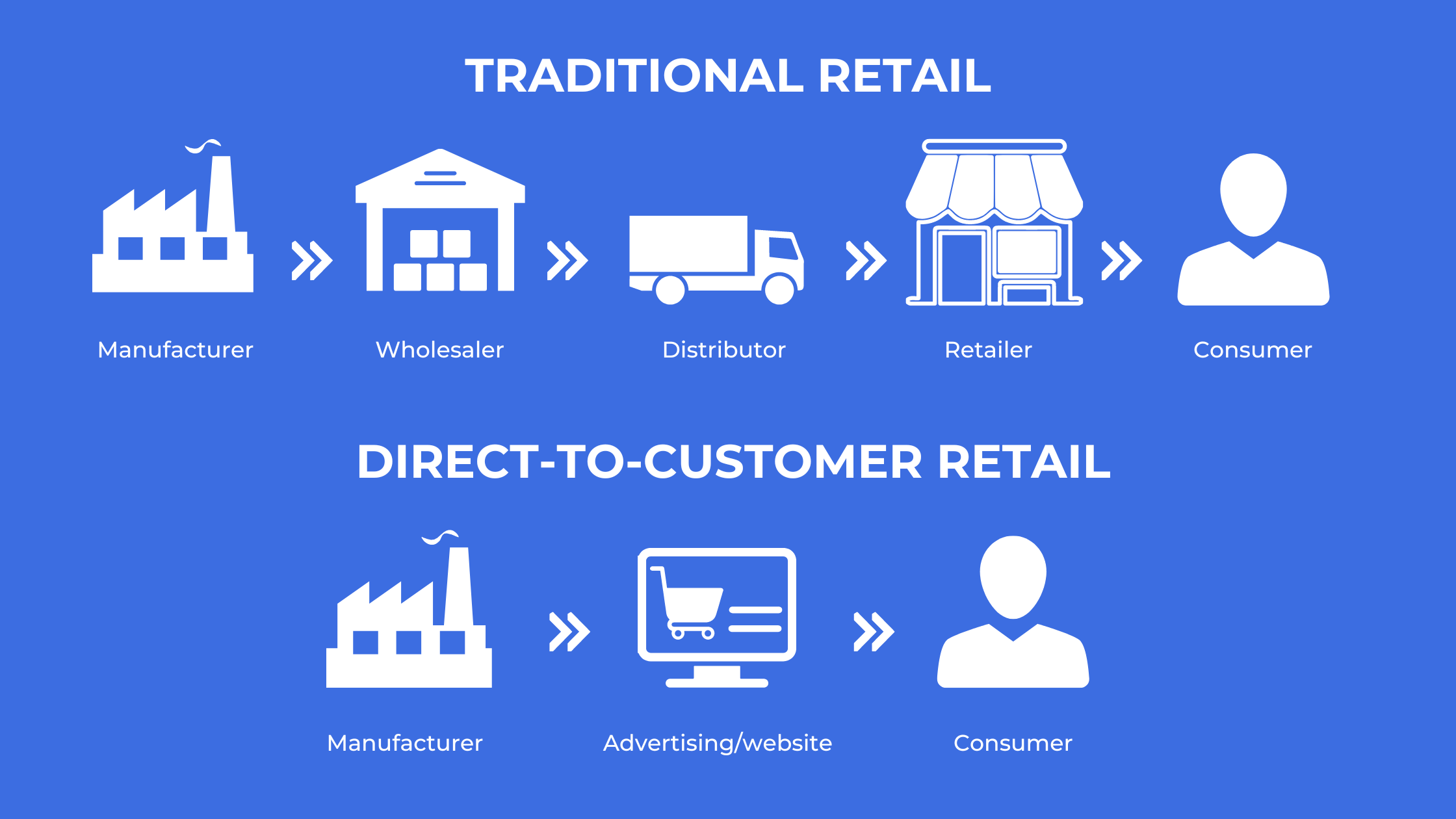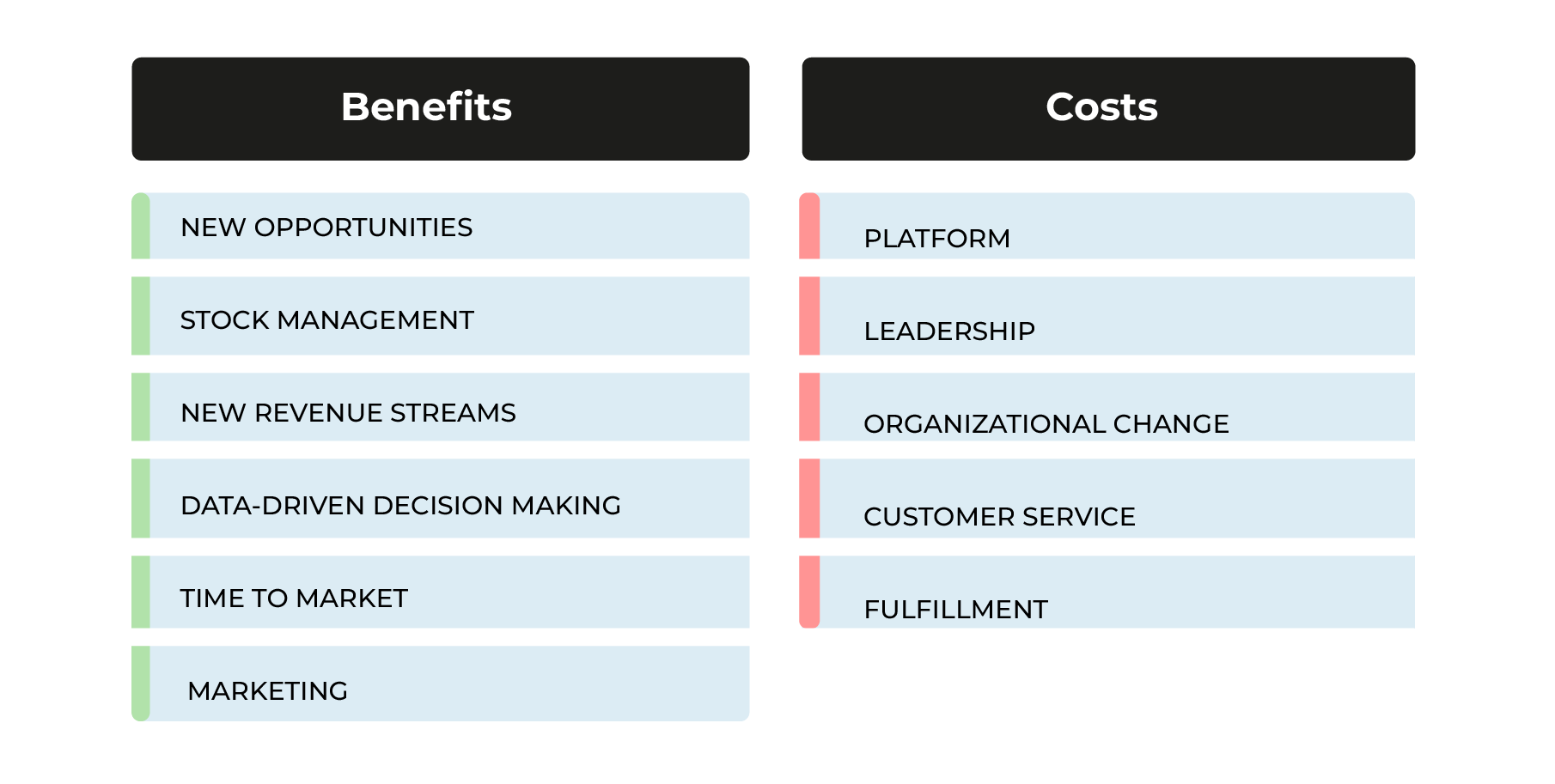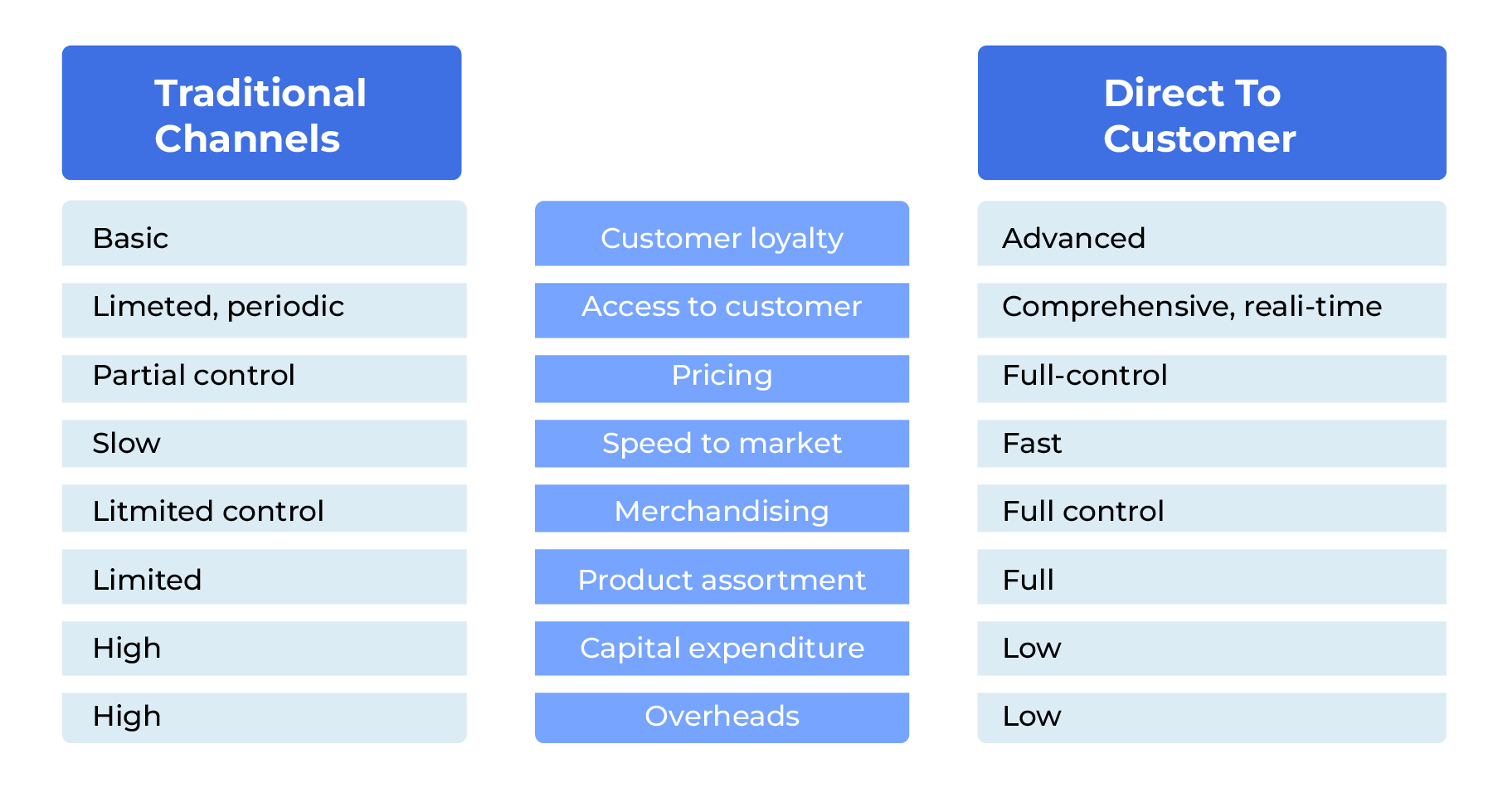Direct-to-consumer (D2C) eCommerce is a growing online sales approach that bypasses established retail channels and allows firms to reach customers directly. While this approach has several advantages, it also has some drawbacks that brands should consider before committing to it. In this article, we will look at the costs and benefits of direct-to-consumer eCommerce.
Direct-to-Consumer Selling
Manufacturers offer their products directly to end customers in a direct-to-consumer business model, bypassing third-party retailers, wholesalers, and distributors.
D2C represents a dramatic departure from the old approach, in which manufacturers sell to wholesalers, who then distribute to retail outlets. While the latter model may still exist, it has been turned on its head by the Internet, rising consumer expectations, and the pandemic.
Why are more manufacturers starting to explore the costs and benefits of selling directly to their customers online?
There are a number of reasons.
If you rely on business to business (B2B) ecommerce platforms like Amazon Business or Alibaba your income stream can be exposed if there are changes to practices, policies or business models. If you sell to wholesalers and distributors online you are adding complexity and missing opportunities to build relationships with your customers. Unless you have a strong business partnership with them there’s always a risk that they will simply replace you with another provider at short notice.
Selling direct to consumers (D2C) online is a growing trend amongst fast-growing business to business (B2B) ecommerce market disruptors and well-established brands. In the US alone D2C sales are expected to be worth over US$212billion by the end of 2024. It isn’t newcomers that are leading this growth; three quarters of US D2C sales in 2022 will be from established brands.
Developing existing practices
Many manufacturers already have a D2C component to their sales in an offline environment. The challenge they now face is to take this approach online successfully as part of their digital transformation plans.
In response to customer expectations for high quality product information online many manufacturers already provide the equivalent of an online catalog. The next step is to implement an effective D2C ecommerce strategy.

D2C ecommerce for manufacturers – what are the costs?
While you might think the costs involved in launching or developing a D2C ecommerce platform for your business will mainly be for building and launching an ecommerce site there are quite a few other things to consider too. Not all the investments will be financial.
You will certainly need to invest in technology but you will also need new skills and training alongside structural and cultural realignment. This is likely to change your relationships with existing wholesalers and retailers.
Platform
Companies of all kinds and sizes have been able to implement a D2C ecommerce platform by accessing marketplaces, using pre-built platforms, or by taking advantage of a software as a service (SaaS) solution like Cloudfy.
Leadership
Your leadership team must be committed to the shift and ready to create a new customer-centric business model supported by the right expertise. Your investment in a D2C strategy must be coordinated at the highest level to deliver your goals for growth and customer engagement. It won’t be something that can be implemented incrementally – it requires disruptive and innovative thinking to suit a fast-moving digital environment.

Organizational Change
Your program will need to include testing and learning new data-driven ways of working across functions, including marketing, sales, supply planning, IT, and product development. You will also need to be prepared for disruption in your existing channels and ready to redefine relationships with your wholesale and retail partners. If your inventory is limited you will need to decide which channels will receive available stock and which customers will have to wait.
Customer Service
When you create multiple new touchpoints customer service must become an organization-wide responsibility. Your shift to D2C will involve more than adding an additional sales channel.
Fulfillment
Many companies that have successfully moved into D2C have made delivery times, traceability, product personalization and easy returns part of the process. This could have significant impact on your operational teams requiring collaboration across functions and investment in logistics partnerships.
D2C ecommerce for manufacturers – what are the benefits?
D2C helps to minimize risk and improve margins because you can sell at a retail price rather than wholesale. You can also have a much closer relationship with your end users, managing your marketing, building your reputation, and controlling your brand.
New Opportunities
You can learn more about your customers’ behavior and preferences and deliver personalized experiences that will build brand loyalty. You can create tailored online offers and prices and even offer your customers the opportunity to customize their purchases and explore diverse opportunities for product innovation.

Stock Management
With an online D2C channel, you will have greater control over stock management. You can guarantee stock for your customers and improve cost control because your margins will be in your own hands.
New Revenue Streams
If you choose to create your own D2C marketplace you can offer a greater variety of products from trusted partners. This will provide cost-efficient opportunities for customer acquisition and added value services. Where you might have previously relied on third parties to reach new audiences you can now explore their potential for yourself.
Data Driven Decision Making
D2C provides you with an opportunity to collect valuable information about your customers, their behavior, and preferences. By translating this new source of data into usable insights you can significantly improve your business decisions. This can include stock management, pricing, production, distribution, and marketing, especially if you integrate your business systems with your ecommerce platform.
Time to Market
You will be able to deliver new products to market much more quickly through your D2C channel when you don’t have to coordinate with wholesalers and retailers. You can test minimum viable product (MVP) versions in new markets and new products with existing customers.
Marketing
Embracing D2C doesn’t mean that your existing channels aren’t part of your plans for the future. You can certainly collaborate closely with them to improve existing product descriptions and specifications, create well-written product information optimized for digital discovery, and high-quality imagery across all your channels.
Work with a trusted partner
Cloudfy is a leading B2B ecommerce platform and the team can offer extensive D2C ecommerce experience alongside the updated ecommerce functionality.
To find out more about the process to implement a D2C ecommerce platform for your manufacturing business talk with one of our experts.






